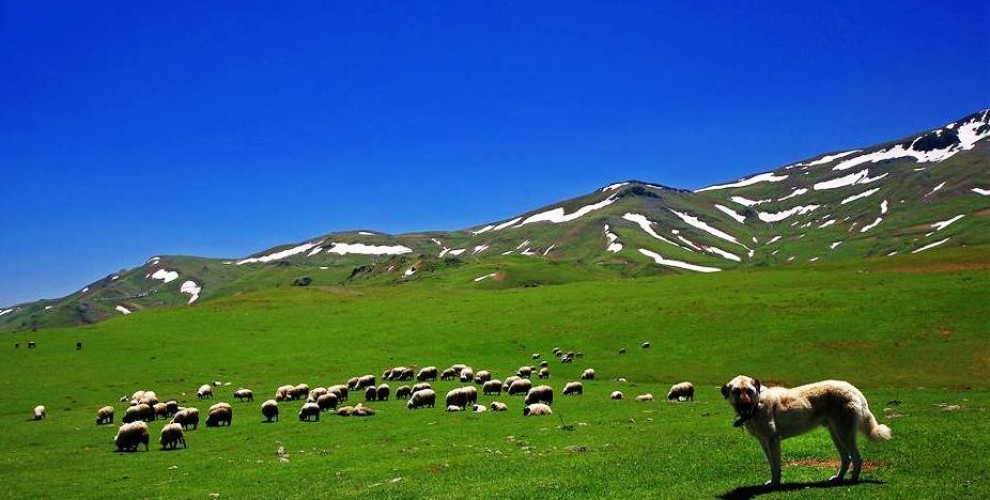Grazing despite the Emergency Law
Hundreds of fields and rural areas have been banned and virtually closed to the people under the excuse of being “special security zone”.
Hundreds of fields and rural areas have been banned and virtually closed to the people under the excuse of being “special security zone”.

Hundreds of fields and rural areas have been banned and virtually closed to the people under the excuse of being “special security zone”. These areas are under the OHAL, state of emergency law proclaimed because of the clashes taking place.
Because of the emergency law, the villagers are prevented from grazing in all the Kurdish provinces, especially Hakkari. As animal husbandry is a source of livelihood for the people of the region, it is clear that prohibiting grazing is a way to target people and their economy.
Almost every month in Hakkari and its districts, dozens of regions are closed under the emergency law and declared “special security zone”.
With spring coming, Hakkari Governorate has once again declared "special security zones” some 30 regions of Colemêrg (Hakkari), Çelê (Çukurca), Şemzînan (Şemdinli) and Gever (Yüksekova) districts. Spring is the time of the year when villagers and cattle owners most need to graze their animals.
Despite the fact that Hakkari is a border city, all border gates have been closed to trading, preventing Hakkari citizens from doing business. Citizens, villagers and cities are actually imprisoned by an economic embargo affecting Hakkari, which is why in the end many desire to emigrate from these areas, life becoming impossible.
In spite of everything, Hakkari citizens continue to live running their own economies of resistance and without needing anything from the absent State.
With the arrival of spring, Hakkari mountains, valleys, lands are richer and more fertile. Spring brings life to Hakkari citizens: animals are getting out in the spring.
The villagers continue to keep grazing in the spring, as they have done for thousands of years. The villagers will stay here for four or five months. During this time they will get cheese, yogurt, cream, oil from their animals. Some of these products from animals will be sold during the summer, while the remaining products will be kept for the winter months. In addition to animal products in spring, women will collect various herbs for food and medicine in the mountains during the spring and summer months.
Speaking to ANF, the villagers stated that they had no choice but to try and do as they have always done. They said: "In spring, we were told the ban on these graze areas would be lifted, but everything they said was a lie. We have no expectation from them. We will not accept any bans. Spring is abundance. That's why we started taking our animals out here. We will stay here for 4 or 5 months. We will make some of our products for ourselves and we will sell more products to cities”.
The villagers continued: “These areas are a way of life for us, our source of income. This has been going on for thousands of years and will continue like this. This is our home. We haven’t come here to be turned away”.